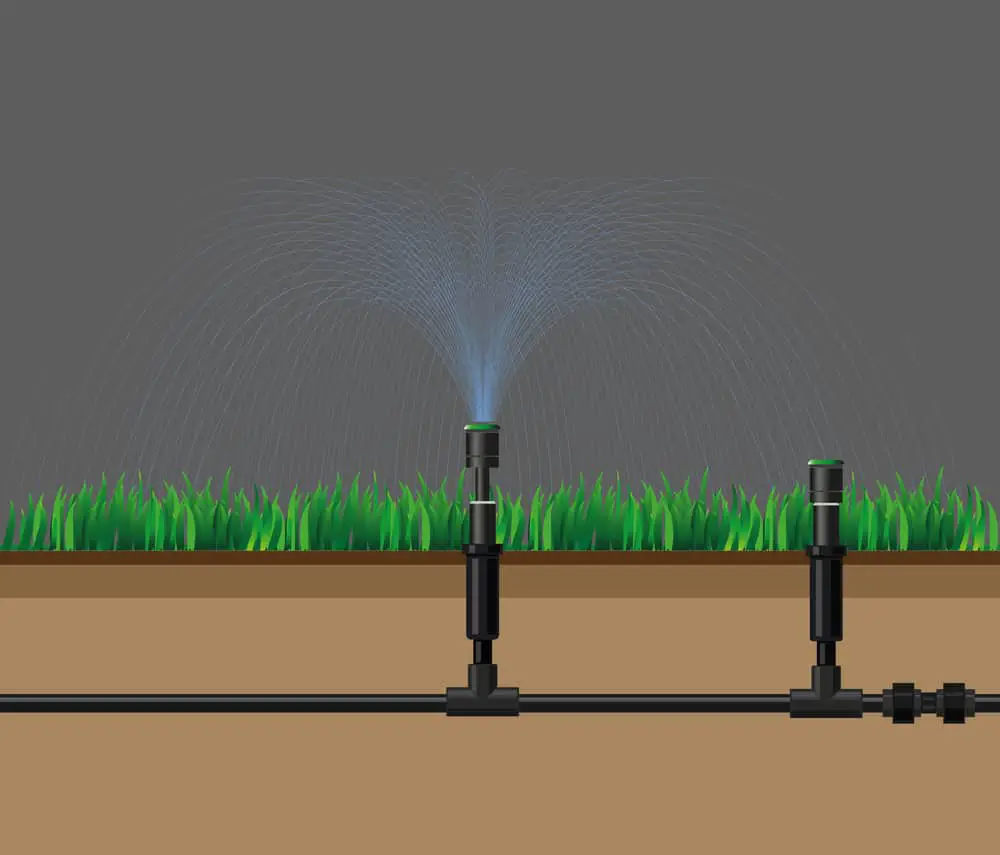For your lawn to remain in the best condition, it is imperative to water it when there is no rain.
Lawn sprinklers become essential lawn care equipment, especially during summer.
The sprinklers work tirelessly to keep your lawn moisturized and evergreen.
Considering how beneficial they can be, it is equally important that you care for them so they can serve you for a long time.
So, Should You Run The Sprinklers Overnight And Unattended?
It is not right to run sprinklers overnight. Additionally, leaving sprinklers unattended for long hours is absurd, whether at night or during the day. Typically, you should run your sprinklers early in the day, the best time being from 4 am to 8 am. This allows the plants and grasses to absorb adequate moisture and prevent long-wet houses that facilitate fungal growth. Once you know when and how long you need to sprinkle, you will be able to attend to your sprinklers as expected.
See Also: How Many Days Should You Run The Sprinklers?
Three Reasons Why You SHOULD NOT Leave Sprinklers Unattended
Just like all other lawn and garden equipment, Sprinklers should be taken good care of.
Otherwise, problems and damage might arise to either the sprinkler or the grass being sprinkled.
Here are the most common reasons why you should never leave your sprinklers on and unattended.
1. Broken Sprinkler Heads
Leaving the unattended sprinkler will lead to unexpected damage, like sprinkler head breakages.
Some can be broken by passing animals or even people who can’t see the sprinkler at night.
In some other scenarios, the sprinklers can get broken naturally after long days of working, and since you dint attend to them, you will not realize.
A broken sprinkler head cannot serve your lawn properly.
Even when running on high water pressure, be sure that it will not sprinkle your lawn as you expect and might not cover the designated region.
Some broken sprinklers only sprinkle into the air, missing out on most areas of the lawn. In the end, you will pay large utility bills, yet your lawn doesn’t benefit.
2. The Heads Can Get Tilted
It is normal to have your sprinkler heads tilted.
If you rarely attend to them, you will just pump water to the sprinklers, and the water fails to benefit the grasses.
Generally, a tilted sprinkler head can cause significant damage to your lawn.
Normally, a sprinkler head should just be bent a few degrees downwards.
Otherwise, it will be sprinkling water just at the points near the sprinkler, leaving more significant parts of your lawn dry.
If you attend to your sprinklers regularly, you will easily tell which one is tilted too much and rectify it where possible.
3. They Can Get Clogged
Sprinklers that are positioned near the driveway can easily get clogged by dust.
Other sprinklers in your lawn also risk being clogged by the elements in the atmosphere and also those from the water it receives.
If you use dirty or hard water for sprinkling your lawn, there is a high chance that the outlets will get clogged.
Things like scum can also develop in the sprinkler, compromising its functionality.
If you attend to your sprinklers, you will be able to able to notice clogs and rectify them.
Thankfully, it is easy to identify and fix clogs within sprinklers.
They can easily be cleaned with your hand or simply removed with a paperclip.
See Also: Is it Bad For Sprinkler Water To Hit Trees?
Four Tips To Ensure Your Sprinkler Is In The Best Condition
When your sprinkler is in the right state, your lawn, too, will be green.
Therefore, you must keep checking the state of your sprinkler to ensure it serves its purpose correctly.
Do the following practices to keep your sprinklers in the right condition.
1. Check The Water Pressure
If you are turning on sprinkler water for the first time, it is important that you check the water pressure.
If the pressure is too high, you might end up with cracked pipes.
It can even result in inefficient lawn watering.
Use a water pressure gauge to get the accurate pressure units, and be sure that it will not get damaged.
Usually, the sprinklers should be connected to a hose faucet operating within 40- 65 psi range.
If you measure and the pressure is outside this range, you will have to make some adjustments.
2. Set The Sprinkler System On The Right Schedules
If you opt for an automatic controller, always ensure you set it on the right schedule.
There are times when you will leave it to operate on the schedule without adjusting it so that you can save water.
Set your controller so it will sprinkle water early in the morning, before 10 am.
This will ensure that more water is absorbed and less water is wasted through evaporation. Sprinkling past 10 am will lead to more water evaporating, leaving the lawn dry.
Again, if you opt to sprinkle at night, the soil will keep wet for long hours, creating a good environment for fungal multiplication.
For your lawn’s safety, ensure the sprinkler is scheduled correctly.
3. Check Sprinkler Settings
Adjustments are necessary to ensure the sprinklers are in good communication.
Check the settings of the sprinkler and adjust where necessary.
Make sure the date and time are correct before using the sprinklers. Replace the timer batteries and sprinkler controller.
4. Check And Repair The Sprinkler Heads
It is key to regularly inspect all your sprinkler heads to check if there is dirt, sand, rocks, and more debris that might block water from sprinkling appropriately.
It also helps you save on water bills spiking too high.
Conclusion
Sprinkling at night is not advisable, and it gets even worse when you leave it on and unattended.
For the safety of your lawn and your sprinklers, always attend to them regularly to ensure that they are in the right condition.
Otherwise, you may end up unknowingly damaging your lawn.

